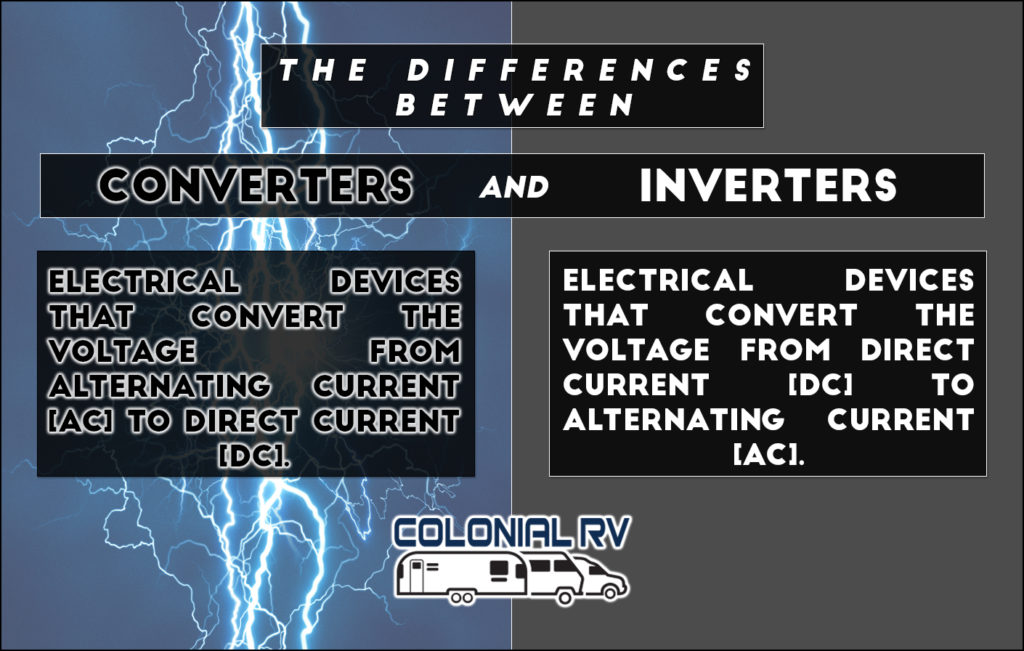When you buy something new, you are bound to have a few questions. As an RV dealer, naturally, customers come to us with their questions. For example… “What is the difference between my converter and inverter?” This question seems to be common amongst new RV owners… and we are here to explain.
First lets talk about the difference between AC and DC (not the rock group). Electricity flows in two ways: either in an alternating current (AC) or in a direct current (DC). Electricity or “current” is nothing but the movement of electrons through a conductor, like a wire. The difference between AC and DC lies in the direction in which the electrons flow. In DC, the electrons flow in a single direction, or “forward.” In AC, electrons switch directions, sometimes going “forward” and then going “backward.” Alternating current is the best way to transmit electricity over large distances (for household use).
Now that we know the difference between AC and DC lets talk about what is in your RV. Your RV has both AC and DC circuits. AC circuits include the outlets that look identical to what is in your house. DC circuits include the 12v outlets that look like the cigarette lighter in your car.
Converters are electrical devices that convert the voltage from alternating current (AC) to direct current (DC). Inverters are electrical devices that convert the voltage from direct current (DC) to alternating current (AC). To explain in a less complex way, a converter takes the electricity from a 15 amp, 30 amp or 50 amp power inlet and sends the power to the necessary appliances (air conditioning, AC televisions, AC outlets). The converter also takes this power and charges your 12V or “coach” batteries.
Inverters are electrical devices that take the power from your batteries and “inverts” the power from 12v to 110v, which allows you to use 110v outlets powered by the power stored in your 12v batteries. This will allow you to use your household items such as phone chargers, computer chargers and televisions without the RV being plugged into “shore power”. Yes, this will allow you to watch television in the middle of the woods at night!
Always remember, a converter and/or inverter cannot supply an endless amount of power. Be smart, do not run your air conditioning, microwave, television, coffee pot, and blow dry your hair at the same time. You will undoubtedly trip a breaker. Know what your appliances draw. If you only have 30 amps of power available and your air-conditioning uses 18 amps, what do you have left to use? Yes, that’s right… 12 amps. We hope this helps explain the difference between your converter and inverter. If you have any questions about your RV, our parts and service department would be happy to help.
You can contact us by phone or e-mail by clicking HERE

